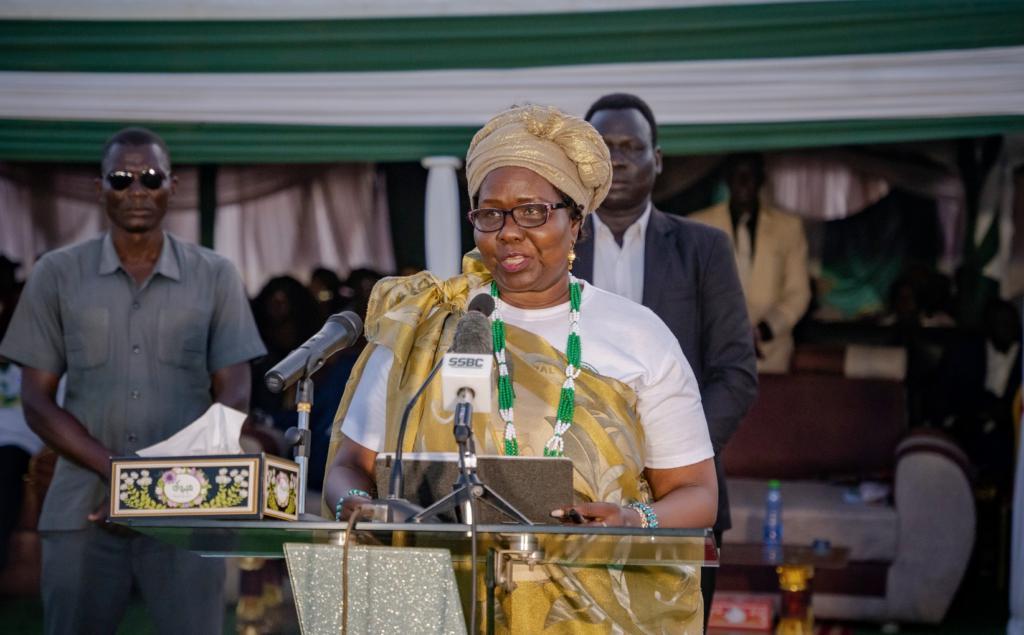Africa-Press – South-Sudan. Juba, Central Equatoria State (Eye Radio) -Vice President Josephine Joseph Lagu, Chairperson of the Service Cluster, has urged South Sudanese to embrace agriculture and reduce reliance on imported food, warning that much of it may not be safe for public consumption.
Speaking at the closing of the Pojulu Cultural Festival in Juba on Sunday, May 12, Vice President Josephine emphasized the need to revive local food production and encouraged communities to use traditional farming tools like hoes while government support improves.
She noted that the tractors recently received by the Ministry of Agriculture and Food Security are insufficient to meet the needs of all farmers across the country.
“The Ministry of Agriculture and Food Security recently received some tractors. These tractors may not be enough for everybody, but it is the beginning. While we wait for more, let’s use our traditional tools—the hoes,” she said. “What the government wants to see is that we produce what we eat, not depending on imported food from other countries that may not even be safe for us.”
The Vice President highlighted President Salva Kiir’s directive to the Ministry of Finance and Planning to prioritize funding for agricultural production. She recalled that regions like Yei and Magwi once served as major food suppliers for Juba, urging a return to that legacy.
Her remarks come amid persistent complaints from farmers about inadequate support, especially in pest control, fuel supply, and market access. Many have also cited insecurity as a barrier to large-scale farming.
Last month, the Economic Cluster approved SSP 62 billion to support agricultural activities ahead of the rainy season. Following the decision, the Deputy Minister of Agriculture, Lily Albino Akol, instructed all governors and chief administrators to allocate 250,000 hectares of land each for cultivation.
The government says it hopes these efforts will reduce food imports, stabilize market prices, and ensure national food security.
For More News And Analysis About South-Sudan Follow Africa-Press






